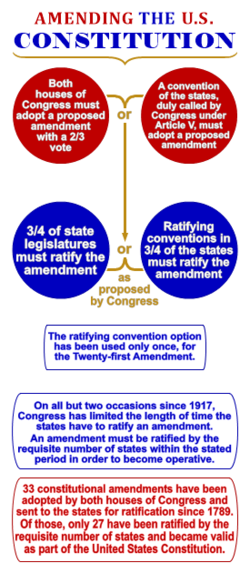High Bar for US Constitutional Change Amidst Public Distrust of Political Influence

A recent social media post by user Rishi ☁⚓⚑♕ has ignited discussion regarding the United States Constitution's amendment process, with the user expressing significant apprehension about potential changes under the current administration. The tweet, which quickly garnered attention, stated, > "We should amend the constitution but I don't trust the current administration with it. They'll probably turn it into an Erdogan style Turkey or a full blown theocracy." This sentiment highlights a broader public concern about the stability and future direction of the nation's foundational legal document, particularly when political polarization is high.
The process for amending the U.S. Constitution is deliberately arduous, as outlined in Article V. An amendment can be proposed by a two-thirds vote of both the House of Representatives and the Senate, or by a convention called for by two-thirds of the state legislatures. Historically, all 27 ratified amendments, including the Bill of Rights, have originated from Congress. Once proposed, an amendment must then be ratified by three-fourths of the states, either through their legislatures or by state conventions, a robust requirement that demands widespread political consensus.
This multi-stage requirement creates an exceptionally high barrier to constitutional change, designed to ensure broad consensus and prevent impulsive alterations. Since its inception over 200 years ago, only 27 amendments have been successfully ratified out of thousands proposed, underscoring the rigorous nature of the process. This inherent difficulty serves as a critical safeguard against any single political faction or administration unilaterally reshaping the nation's core principles or democratic structures.
The user's concerns about the Constitution being transformed into an "Erdogan style Turkey" – implying a shift towards authoritarianism with reduced secularism and democratic checks – or a "full blown theocracy" reflect deep anxieties over potential radical governmental shifts. However, the multi-layered ratification mechanism, requiring significant buy-in across diverse political landscapes at both federal and state levels, makes such drastic and rapid transformations exceptionally challenging. The system is built to resist changes that lack widespread, bipartisan, and interstate support, acting as a bulwark against extreme political or ideological overhauls and preserving the Constitution's enduring framework.